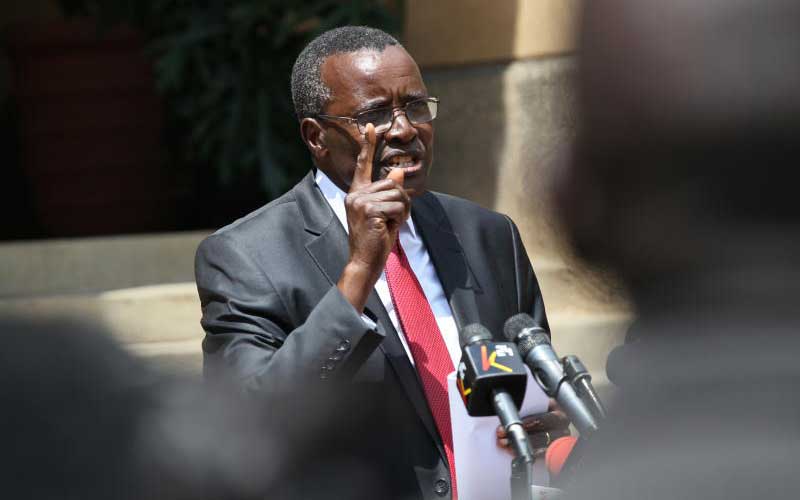×
The Standard e-Paper
Stay Informed, Even Offline

The circus between the Judiciary and the Executive over judges is far from over after parties declined to sit and reach a solution.
Instead, the fate of the 41 judges whose names were forwarded by the Judicial Service Commission (JSC) to President Uhuru Kenyatta for appointment will be determined by the High Court after Attorney General Kihara Kariuki, JSC lawyer Adrian Kamotho and Head of Civil Service Joseph Kinyua failed to resolve the matter.